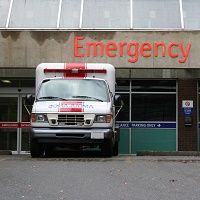Rheumatoid Arthritis Risk Increased for World Trade Center First Responders
Emergency service personnel who responded to the World Trade Center on September 11 are at an increased risk for autoimmune diseases, such as rheumatoid arthritis.

Emergency service members who worked at the World Trade Center in the months and years following September 11 have an increased risk for developing rheumatoid arthritis (RA) and other rheumatic diseases, according to findings published in Arthritis & Rheumatology.
A collaborative team of New York based researchers conducted a study of nearly 16,000 first responders to September 11, 2001. The researchers examined 59 adults with confirmed rheumatic diseases diagnosed between 9/12/01 and 9/11/13 matched with 4 randomly selected control groups from a total of 236 patients matched for year of hire, gender, race, and work assignment (firefighter or Emergency Medical Service) in order to examine the hypothesis arrival time at the World Trade center site and months of related work were associated with increased risk of new onset systemic autoimmune diseases. The rheumatologists involved in the study were blind to the participants’ exposure length.
The researchers defined the workers’ exposure to the World Trade Center dust as a mix of “pulverized cement, glass fibers, silica, asbestos, lead, polycyclic aromatic hydrocarbons, polychlorinated biphenyls, and polychlorinated furans and dioxins.”
The most common autoimmune diagnosis was RA at 37 percent. Other diagnosed diseases included spondyloarthritis (22 percent), inflammatory myositis (14 percent), systemic lupus ethythematosus (12 percent), systemic sclerosis (5 percent), Sjogrens syndrome (5 percent), antiphospholipid syndrome (3 percent), and granulomatosis with polyangiitis (Wegener’s) (2 percent).
“We believe that this is the first study to demonstrate that prolonged WTC exposure is an important predictor of post 9/11 systemic autoimmune diseases,” lead author Mayris Webber, DrPH, MPH said in a press release. “It is our hope that increased awareness of this association can lead to earlier diagnosis and treatment.”
For each additional month worked at the site, the conditional odds ratios of autoimmune disease increased by 13 percent. This was independent of the link between high acute exposure (which the researchers defined as working the morning of September 11, 2001), and disease outcome. It was elevated, the researchers said, but not statistically significant.
“There are certainly respiratory conditions that were obvious right away,” Webber told media. “People were coughing their heads off. But there are other illnesses that are thought to take decades to develop. And there are other things we just don’t know about.”
Another reason that this study was significant is that the afflicted patients included primarily men, one article noted.
“This is a macho population,” Webber continued. “They’re physically active. They’re not necessarily at home thinking about their aches and pains.”